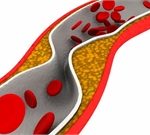
Male researchers are far more likely than female colleagues to claim that their findings are especially important, a new study says. The language used to describe discoveries can affect how much attention researchers get and also affect their career advancement. These findings may help explain why women in medicine and science tend to get paid less and have fewer career opportunities, the authors said. “The factors that underlie gender disparities in academia are many and complex, but it is important to be aware that language may also play a role — as both a driver of inequality and as a symptom of gender differences in socialization,” senior author Dr. Anupam Jena said in a Harvard University news release. He’s an associate professor of health care policy at Harvard Medical School. Jena and his team analyzed more than 6 million peer-reviewed clinical and life science studies published between 2002 and 2017. That analysis revealed that papers with male lead authors were up to 21% more likely to use language that casts the findings as highly significant than papers with female lead authors. Specifically, the titles and abstracts of papers with male lead authors were more likely to use words such as “excellent,” “novel” and “unique.” Papers using this type of positive framing were cited up to 13% more often by other researchers than papers without it,… read on >
























-300x200.jpg)













